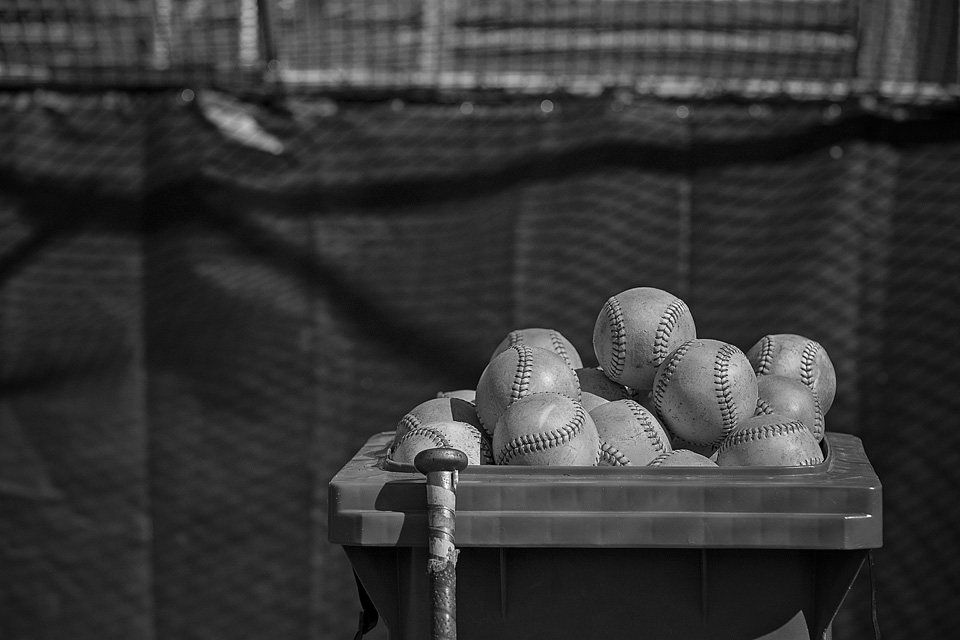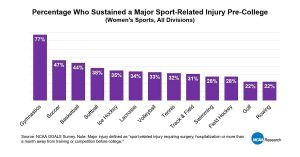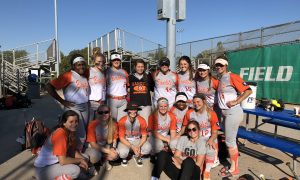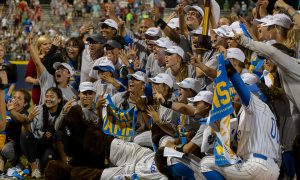EDITORIAL: The Over Glorification of “Tough”

While scrolling through my Twitter feed last night I saw a post that truthfully enraged me. It was a post of someone celebrating the “toughness” of a young athlete who injured herself, continued to push though a try out, and was said to have later been told she suffered a concussion. I don’t get the underplay of the situation and the instantaneous pedestalling of her “toughness”. It completely brushed the injury away as if it was nothing (even if unintentional), this wasn’t a sore body part or some scratch, it’s a concussion.
As a disclaimer: I was not there, I did not see the incident, her behavior following the impact, or if they had the staff in place to check and clear her. And it is important to note that those who have concussions can experience a delayed onset of symptoms meaning it may not immediately be visible. This is also not meant to be a “knock” on this young athlete. Here’s the catch 22, you have to love the determination and the drive to continue, this should serve her well through life and these are the skills most hope to learn through sport. To be honest, I’m not even necessarily “knocking” the individual who originally created the post; to me, it is merely a representation of a much larger issue that has to be discussed.
My point of contention comes with the avenue taken via social media and the message it put fourth. Again this wasn’t a ripped up knee, this isn’t a sore body, this isn’t someone gutting out their 4th straight game on the mound when they’re tired… This also wasn’t Kerri Strug sticking a vault to bring home an Olympic Gold Medal (I hope anyone reading this knows the reference but if not, check it out here).
In today’s society the topics of “tough love”, “pushing through”, and the “no days off” attitude are hotly debated issues. Where do we strike the balance? Adults and coaches can’t coddle children and teenagers (that’s beneficial to no one) but there is also an equal necessity for gentleness, understanding, and advocacy. So where is the balance? It’s undoubtedly a tough question and the answers are not black and white, however, what I do know is we collectively need to do a better job of protected and teaching these young athletes holistically.
Parents and coaches, you have to be the adults. You have to be the role models, you have to set the example, and you must make the hard choices for an athlete under your care. They are relaying on you to do so rather they realize it, or appreciate it, at the time. You can (and should) teach the important life values of drive, work ethic, “pushing through”, focus, and “toughness” without sacrificing a child and athlete’s well being. Is it hard? Yup. Is it seemingly getting harder? Absolutely. But that does not mean it cannot be done; parents, coaches, and adults just need to be better and the conversation around these issues has to change.
You can’t put all the onus on these young athletes. First and foremost, most of them just want to play especially at the highest levels of competition. And while that dedication should be celebrated it is also the duty of the adults to make the tough decision these kids may not yet be equipped to make themselves. We have to teach our athletes the differences between what can be “pushed through” and what cannot, we need to teach them how to speak up when they reach that point, and we have to listen to them so they know like they’re in an environment where that will be respected and heard. We can show them how to know the difference between “sore” and “pain”; we can show them what “pain” and “issues” can be played with and which can’t; we can show them how to mentally overcome fatigue and “bad days”; we can show them when to push through and be uncomfortable; and we can also show them how and when its is okay to rest, recover, recollect.
The issue isn’t going away, and in many regards, it’s only getting worse. These kids are being broken before they’re even old enough to vote! They’re entering college and life beyond with major injuries that some will never fully return from, it’s a problem. In a Tweet released on December 28, 2018 from NCAA Research highlighted this issue across all divisions of women’s sports. If this does not concern you, it should.

A large part of the conversation centers around the increase in specialization at young ages and year round competition. These are other topics we hope to discuss in the future but it’s multifaceted, complex, and even more of a reason we have to get better at caring for and teaching our youth athletes the proper way to approach “toughness”.
Coaches, parents, other adults: it starts with you and you all have to work together. It’s tough, no doubt and it’s something that will continue to evolve and be debated, but we can do better. Make these conversations a mandatory part of your program; set aside time to discuss expectations and guidelines; help your athletes start to understand the complex nature of injury, well-being, and long term effects; answer questions, help them decipher what they may not understand; and seek out resources to help and answer questions you may have.
Don’t let “toughness” become synonymous with “stupidity”.







